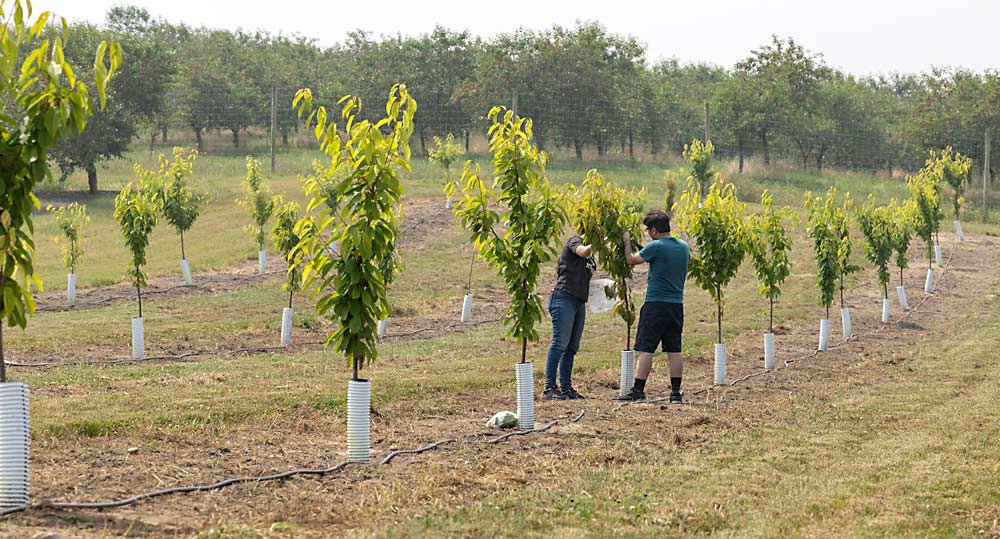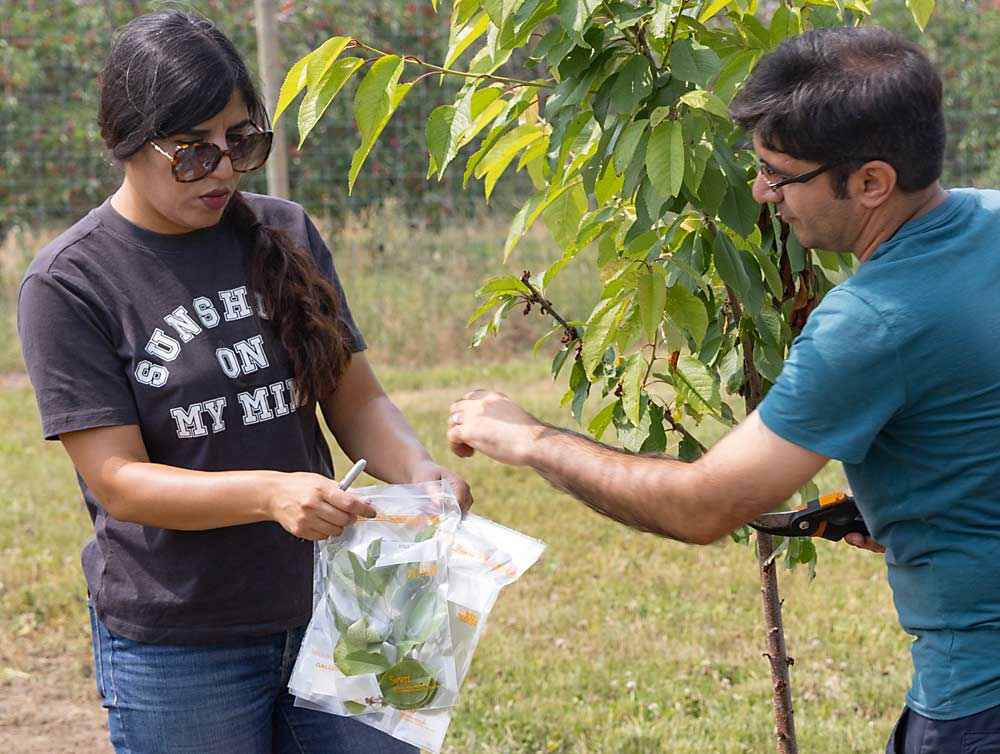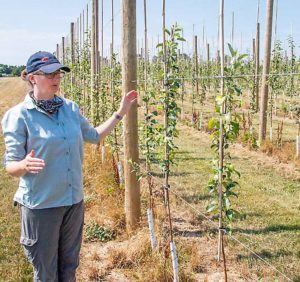
Some Michigan growers want to plant more sweet cherries for the processing market. But every grower who pulls out old fruit trees to replace them with cherries has to contend with replant disorder.
The disorder occurs when new trees are planted in the footprint of older trees that attracted soilborne pathogens and diseases over their lifespans. Such pest pressure may have had little impact on mature trees, but it can suppress the growth of young trees and lead to early declines in tree health. The disorder, or complex, includes plant-parasitic nematodes that serve as vectors for viruses.
To combat replant disorder, growers let the field lie fallow (two years or more is recommended) or fumigate the soil before replanting. But growers can’t always afford to wait to plant new trees, and plant-parasitic nematode populations tend to come back within a few years after fumigation, said Michigan State University assistant professor and applied nematologist Marisol Quintanilla.
Quintanilla’s lab team studies nonfumigant management strategies for cherry replant disorder, with a focus on combating plant-parasitic nematodes. They established a trial orchard at MSU’s West-central Michigan research station in Hart last year, with funding from the Michigan Department of Agriculture and Rural Development and the Michigan Cherry Committee.
The MSU team’s goal is to test management practices that can reduce replant problems, decrease nematode damage and increase plant growth in cherry trees, with an eye toward producing “firm recommendations” for growers. It’s a sweet cherry trial, but its findings could apply to tart cherries and other stone fruit where replant problems are common, Quintanilla said.
They planted a trial block of Emperor Francis and Ulster cherries on Mahaleb rootstock, spaced 20 feet by 20 feet. The trees were planted in May 2022. Five treatments (plus an untreated control) were applied: Dairy Doo compost; Seed Starter compost; Seed Starter, Dairy Doo and straw bales; Velum Prime fungicide; and fumigation with Telone C-35.

The researchers track the effects of the different amendments on populations of both plant-parasitic and beneficial nematodes in the soil, as well as on cherry tree growth and development, said Ali Yaghoubi Akbar, a postdoctoral researcher in Quintanilla’s lab who’s managing the replant trial.
In June, Yaghoubi Akbar and his wife, Razieh Yazdani, also a fellow MSU researcher, were at the Hart research station collecting spur samples from the trees in the replant trial. They planned to take the samples back to the lab, weigh them, measure their length and count the number of leaves to learn more about treatment effects on tree growth. To measure effects on nematode populations, they planned to take soil samples in September. They hope to continue the trial for at least five years, he said.
Quintanilla said the goal of the project is not to replace fumigation as a treatment for replant disorder. There are times when fumigation is very effective — such as replanting immediately after removal — and times when alternative treatments can supplement, or maybe even replace, fumigation. Straw mulch, compost and other treatments are sustainable and support beneficial nematodes and fungi that are the enemies of plant parasites. The amendments also help with water retention and root growth.
First-year results from the trial show that fumigation increased tree growth in both Ulster and Emperor Francis trees. They also found that the combined use of Seed Starter, Dairy Doo and straw bales effectively prevented the reproduction of plant-parasitic nematodes and increased the reproduction of beneficial nematodes, Yaghoubi Akbar said.
John Bakker, interim farm manager from 2021 to 2023, was instrumental in bringing the replant trial to the Hart station. He was familiar with Quintanilla’s research in carrots and potatoes, which showed that nonfumigant alternatives could be effective and environmentally sustainable, and he pushed for a replant trial focused on processing sweet cherries, a popular and growing crop in West-central Michigan.
“Growers and buyers are always looking for more sustainable practices,” Bakker said. “This seemed like a great fit.”
—by Matt Milkovich







Leave A Comment